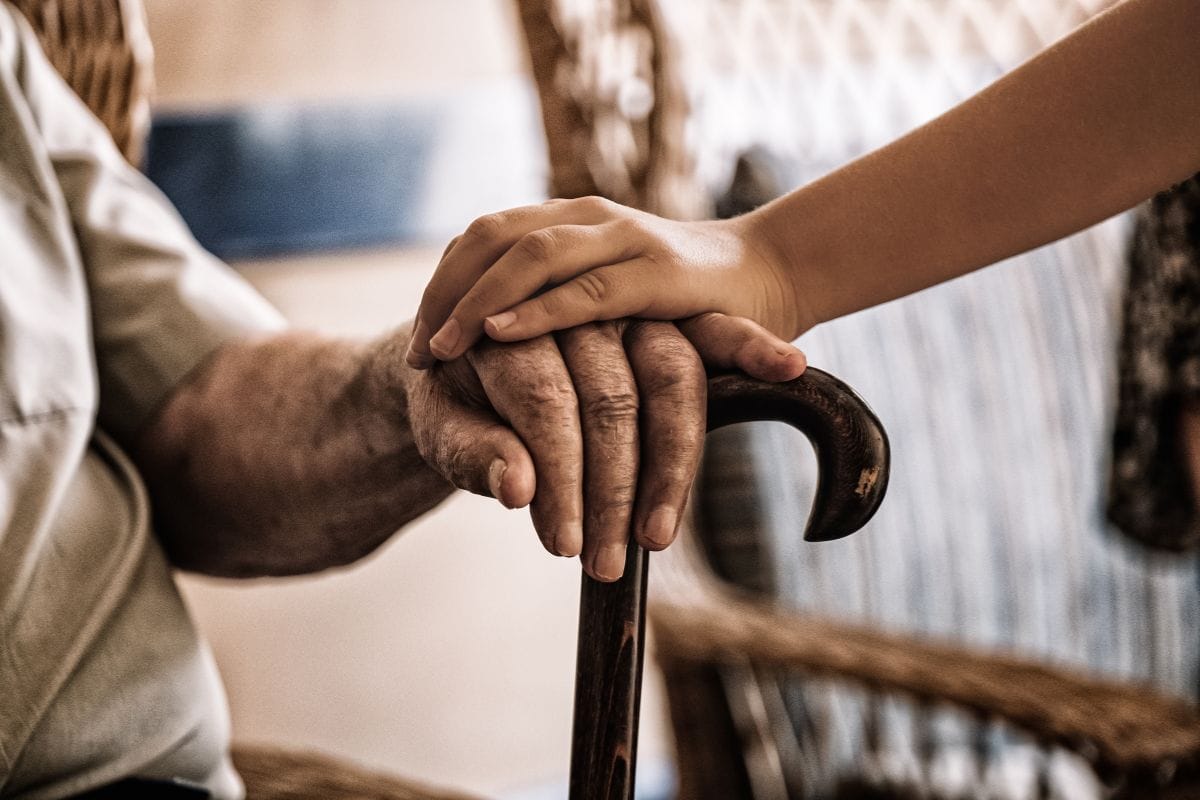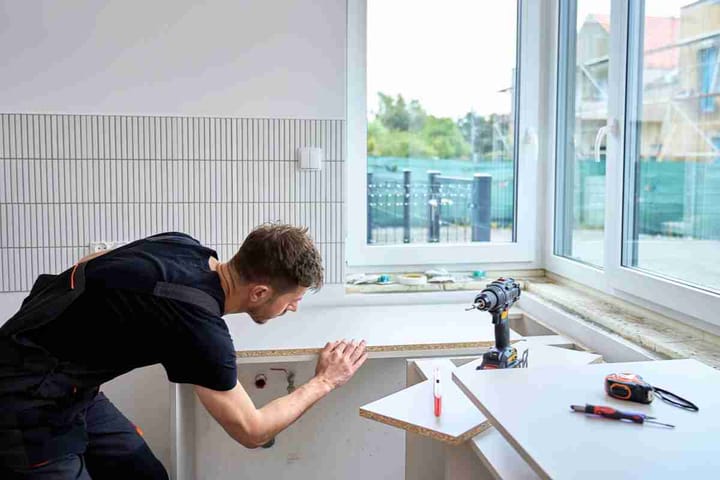20 Tips on Caring for Elderly Parents at Home
Caring for elderly parents at home is challenging yet rewarding, involving chores and companionship, often leading to them living with us for better care.

A difficult but worthwhile responsibility is providing at-home care for aging parents. In addition to providing companionship and emotional support, it may entail household chores like cooking and cleaning. They might move in with us as they get older and need more assistance. This enables us to interact with them and provide them with the attention they merit.
Making a home that is secure and cozy is part of taking care of aging parents. This could entail making necessary medical adjustments and modifying our houses. VEVOR provides many suitable options for the assistance of the elderly as well.
- One of the Tips is: Create a Safe and Accessible Environment
Handrails for stairs serve a vital purpose in ensuring safety and accessibility. By providing a stable grip, the handrail for stairs offers support to individuals ascending or descending stairs, particularly those with mobility issues, the elderly, or children. Proper installation and maintenance of handrails are essential to prevent accidents and comply with building codes. Additionally, VEVOR handrails can enhance the aesthetic appeal of staircases, adding a decorative element to the overall design.
- Elderly Health Care
Elderly care encompasses a wide range of needs and preferences related to aging. Depending on the person, symptoms could vary from memory loss to incontinence. You will be able to give your parents the best care possible if you have a thorough understanding of their medical history, preferences, and current conditions.
- Providing Emotional Support
As important as meeting the physical needs of the elderly is providing them with emotional support. Pay attention to your parents, make an effort to understand their situation, and be there for them during difficult times. Simply listen to them out without criticizing or passing judgment, and help them feel comfortable enough to open up to you. You will be able to understand them and form an emotional connection with them if you do this.
- Safety Measures
Conduct a thorough assessment of your home to identify potential safety hazards and make necessary modifications. Install handrails, grab bars, nonslip mats, and adequate lighting to prevent falls. Consider adjusting furniture arrangements to accommodate mobility aids and ensure ease of movement.
- Alzheimer's and Dementia Care
People suffering from dementia or Alzheimer's disease require individualized care plans, compassion, and empathy daily. Try to become knowledgeable about the signs and progression of these conditions. Consult health care providers, dementia experts, and support groups for help.
- Options Besides Extended Care
By looking into respite care options, carers who are experiencing burnout or exhaustion may be able to get the support and relief they need. Look into in-home care assistance, adult day programs, and respite care services to find regular ways to take care of yourself.
- Maintaining a Hygienic Atmosphere
You must keep your hygiene to a very high standard for the benefit of your parents' comfort, dignity, and health. Make cleaning and hygiene a priority by creating a regular regimen for washing and grooming.
- Medication Management
Create a comprehensive medication management system to ensure your aging parents take their medications as prescribed. Organize pill dispensers, set reminders, and maintain an up-to-date medication list. Coordinate healthcare appointments, treatments, and follow-ups with their healthcare providers.
- Legal-Related Concerns
Parents who are elderly and caretakers can feel secure in the knowledge that legal factors are taken into account. Establish formal power of attorney, guardianship, or advance directives to ensure that their desires are respected and carried out.
- Reducing Accidents and Falls
By taking proactive steps to avert accidents and falls before they occur, elderly parents can avoid hospitalizations and injuries. Perform a thorough home safety inspection and take care of any problems you find, like loose carpets, clogged walkways, or insufficient lighting.
- Support for Budgeting
To ensure long-term security and safety, financial planning and assistance must be carefully considered. Talking to your parents about financial issues, such as estate planning, insurance, and retirement planning, should be honest and open.
- Respite Care and Self-Care for Caregivers
Recognize the importance of self-care for yourself as a caregiver. Take breaks, seek support from family members or respite care services, and prioritize activities that rejuvenate and replenish your energy. Attend to your physical, emotional, and mental well-being to prevent burnout and maintain your ability to provide quality care.
- Financial Planning
Discuss financial planning and legal matters with your aging parents to ensure their wishes are documented and respected. Review estate planning documents, such as wills, powers of attorney, and advance directives. Seek guidance from financial advisors and legal professionals to address any concerns or questions.
- Extending Help with Household Tasks
Helping with their daily routine is a crucial part of being a carer for elderly parents. Help them with everyday household chores like cooking, cleaning, and dressing. Be flexible in your support delivery as their needs and abilities change.
- Advance Care Planning
Have open and honest conversations with your aging parents about their advance care preferences and end-of-life wishes. Discuss topics such as resuscitation preferences, life-sustaining treatments, hospice care, and funeral arrangements.
- Be Transparent in Communication
In any relationship, good communication is essential, but it's even more important when taking care of aging parents. It's critical to discuss your parents' needs and preferences honestly and openly.
- Nutritious Meals and Hydration
Prioritize nutrition and hydration by planning balanced meals that meet your aging parents' dietary needs. Include a variety of fruits, vegetables, whole grains, lean proteins, and healthy fats. Encourage regular hydration by offering water and other beverages throughout the day.
- Physical Activity and Exercise
Encourage your aging parents to engage in regular physical activity and exercise tailored to their abilities. Incorporate activities such as walking, gentle stretching, chair exercises, or yoga to promote strength, flexibility, balance, and overall well-being.
- Seeking Guidance from Professionals
Getting expert assistance is the simplest way to get through the difficulties of caring for an elderly person. They can offer you the direction and assistance you require. Work together with geriatricians, social workers, and medical professionals to develop a comprehensive plan for your parent's care.
- Encouraging Interpersonal Communication
Aging parents must maintain social engagement as a means of preventing depression, loneliness, and memory loss. Plan regular get-togethers with loved ones or social gatherings to foster meaningful connections and interactions.
Final Words
Providing at-home care for aging parents is a challenging process that calls for commitment, tolerance, and affection. If you use the concepts and techniques in this guide to create a nurturing and supportive environment for your loved ones, their health, happiness, and overall well-being will be greatly improved. Keep in mind that your elderly parents are distinct individuals with their own set of needs and preferences, so treat them with empathy, flexibility, and open communication




Comments ()